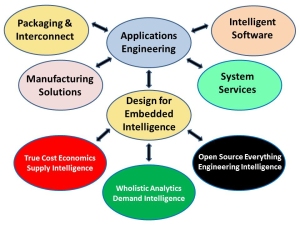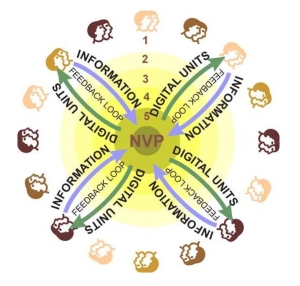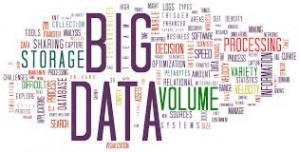Enhanced Graphic:

Source: Robert David Steele

I just downloaded the GREENHOUSE app for Chrome and it is great. Talk about easy access to highly illuminating data. Well done! I’d encourage everyone to take a look at the app. It is very light and couldn’t be easier to use. As the creator Nick Rubin says, – Some are Red. Some are Blue. All are GREEN. That’ couldn’t be more true.
This is what we mean when we say technology can beat the bureaucracy. Let that sunshine in.

New Planetary Economy
A new, rational, self-regulating economic system is necessary to meet present and projected global realities. The current model creates artificial scarcity by strictly controlling the issue of currency, converting it into a tradable commodity itself. Money is further hoarded and manipulated in such a way as to create debt, inequity and poverty.
The silver lining to the current economic crisis is that people will be forced, perhaps for the first time, to examine their unconscious assumptions about this entrenched system and stretch their cognitive range to allow for a different approach.
Below the fold are the executive summary in full text, and a 22 page PDF with graphics.
Continue reading “Larry Chang: Values-Based Planetary Economy”

Kevjn Lim is an independent writer and Middle East foreign policy analyst at Open Briefing: The Civil Society Intelligence Agency. In the latter half of 2013, he was Turkey representative for the Syria Needs Analysis Project (SNAP), covering the Syrian crisis in the northern governorates and Turkey. From 2007-2011, he served as delegate with the International Committee of the Red Cross (ICRC) in the Palestinian Territories, Sudan’s Darfur region, Iraq, Gaddhafi’s Libya and Afghanistan. He also taught modern languages (Hebrew, Arabic, French and Spanish) at both Trinity and Queens’ Colleges, University of Melbourne (2004-2006), and served as intelligence officer with the Singapore Armed Forces (2001-2004). Kevjn holds a BA and an Honours Degree (First Class) in political science and Jewish-Islamic studies from the University of Melbourne. He is currently doing postgraduate work in strategic studies. Among other languages, he is fluent in Arabic, Hebrew and Persian, as well as some Turkish, and is currently based in the Middle East.
Continue reading “Answers: Robert Steele to Kevjn Lim on Big Data”

Zoomanitarians has been in the works for well over a year, so we’re excited to be going fully public for the first time. Zoomanitarians is a joint initiative between Zooniverse (Brook Simmons), Planet Labs (Alex Bakir) and myself at QCRI. The purpose of Zoomanitarians is to accelerate disaster damage assessments by leveraging Planet Labs’ unique constellation of 28 satellites and Zooniverse’s highly scalable microtasking platform. As I noted in this earlier post, digital volunteers from Zooniverse tagged well over 2 million satellite images (of Mars, below) in just 48 hours. So why not invite Zooniverse volunteers to tag millions of images taken by Planet Labs after major disasters to help humanitarians accelerate their damage assessments?

The Hadoop Elephant Offers A Helping Trunk
It is time for people to understand that relational databases were not made to handle big data. There is just too much data jogging around in servers and mainframes and the terabytes run circles around relational database frameworks. It is sort of like a smart fox toying with a dim hunter. It is time that more robust and reliable software was used, like Hadoop. GCN says that there are “5 Ways Agencies Can Use Hadoop.”
Hadoop is an open source programming framework that spreads data across server clusters. It is faster and more inexpensive than proprietary software. The federal government is always searching for ways to slash cuts and if they turn to Hadoop they might save a bit in tech costs.
“It is estimated that half the world’s data will be processed by Hadoop within five years. Hadoop-based solutions are already successfully being used to serve citizens with critical information faster than ever before in areas such as scientific research, law enforcement, defense and intelligence, fraud detection and computer security. This is a step in the right direction, but the framework can be better leveraged.”
The five ways the government can use Hadoop is to store and analyze unstructured and semi-structured data, improve initial discovery and exploration, making all data available for analysis, a staging area for data warehouses and analytic data stores, and it lowers costs for data storage.
So can someone explain why this has not been done yet?
Whitney Grace, May 13, 2014
Sponsored by ArnoldIT.com, developer of Augmentext